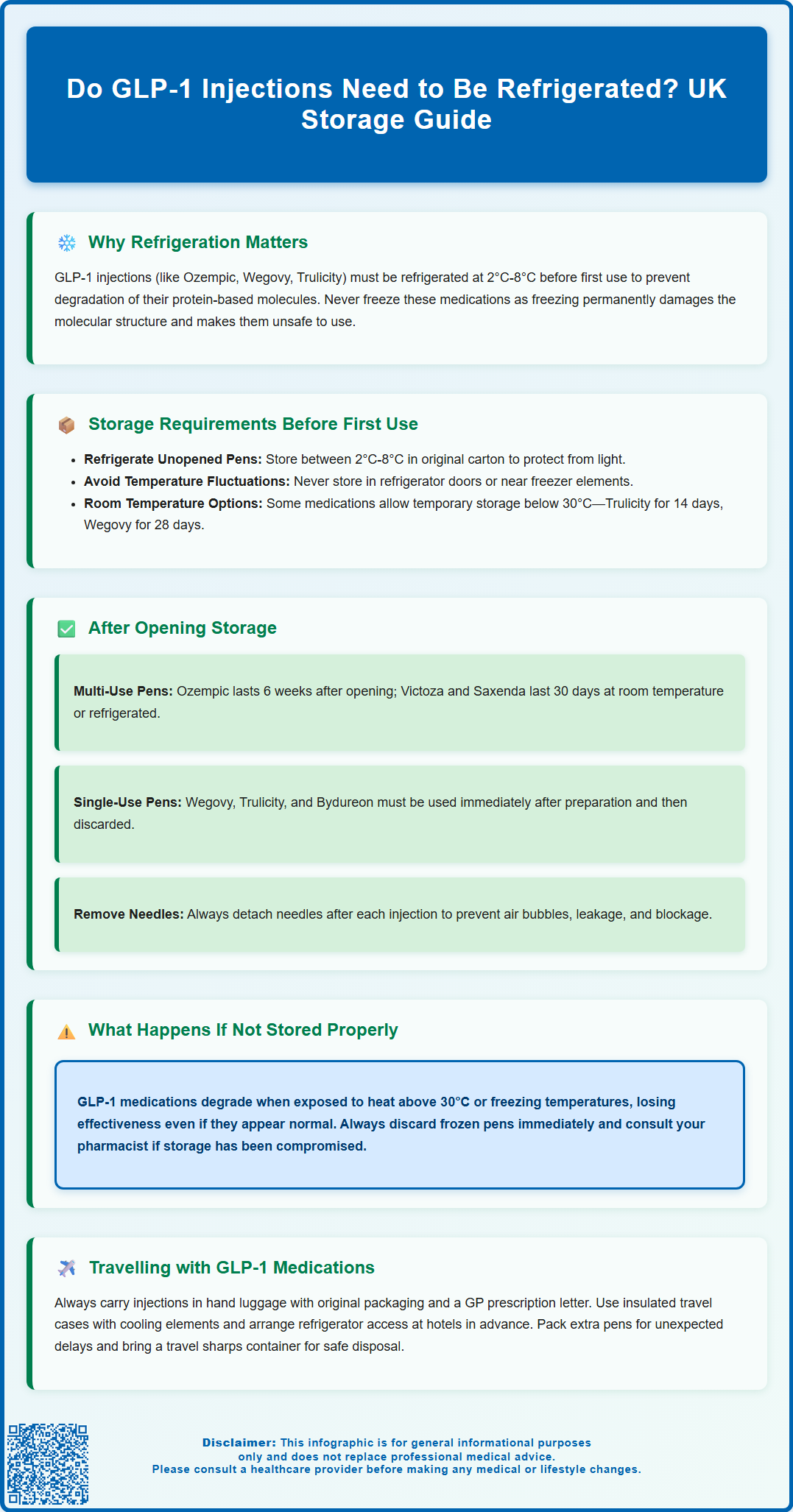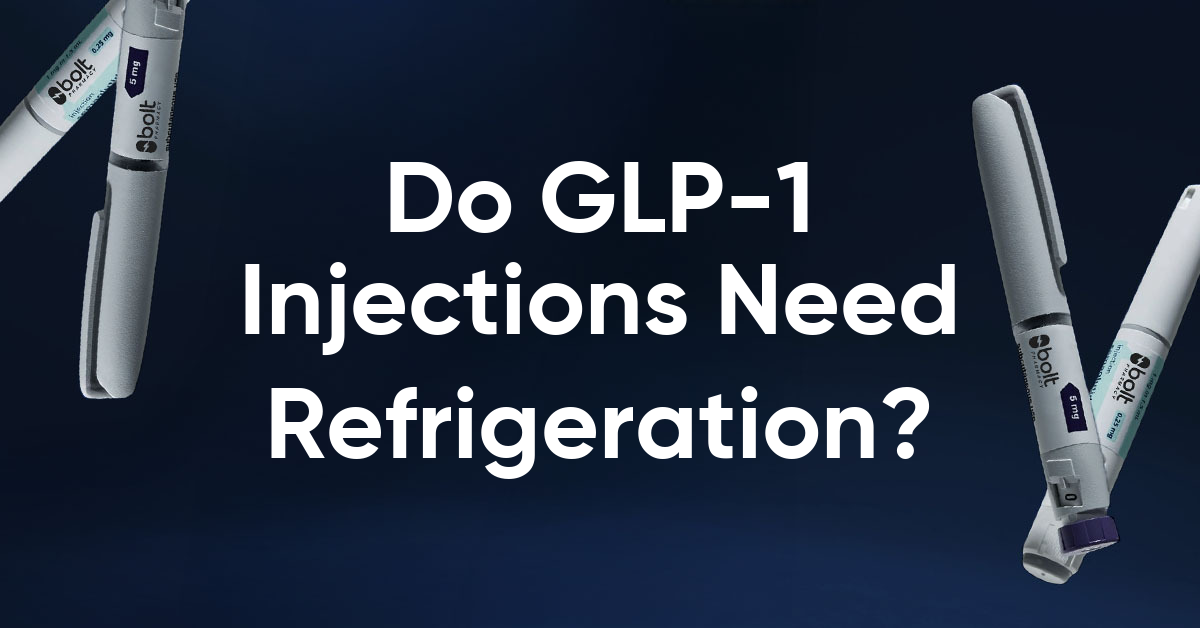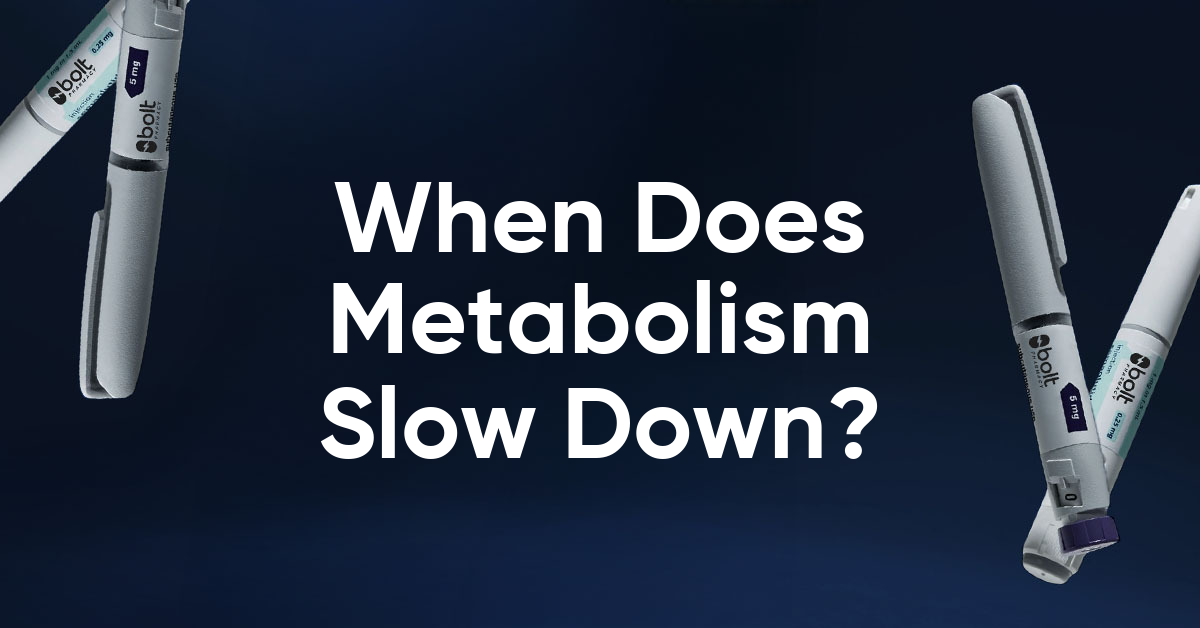Do GLP-1 injections need to be refrigerated? Yes, GLP-1 receptor agonist injections generally require refrigeration before first use to maintain stability and therapeutic effectiveness. These biologic medications contain protein-based molecules that degrade when exposed to inappropriate temperatures. Proper storage is essential for treatment success in type 2 diabetes and weight management. GLP-1 medications—including semaglutide (Ozempic, Wegovy), dulaglutide (Trulicity), liraglutide (Victoza, Saxenda), and exenatide formulations—must typically be stored between 2°C and 8°C before opening. Storage requirements change after first use, with many products allowing room temperature storage for defined periods. Understanding your specific medication's storage guidance ensures optimal efficacy and safety throughout treatment.
Summary: GLP-1 receptor agonist injections must be refrigerated at 2–8°C before first use to preserve their biological activity and therapeutic effectiveness.
- GLP-1 medications are protein-based biologics susceptible to degradation from temperature extremes, requiring refrigeration between 2°C and 8°C before opening.
- After first use, storage requirements vary by product—some formulations like Ozempic and Victoza may be kept at room temperature below 30°C for specified periods (typically 30–42 days).
- Freezing permanently damages GLP-1 medications and renders them unsafe; frozen pens must be discarded immediately even after thawing.
- Improper storage can reduce medication potency, potentially leading to inadequate glycaemic control or suboptimal treatment outcomes without visible changes to the solution.
- When travelling, GLP-1 injections should be carried in hand luggage with insulated cases, never in checked baggage where temperatures may become unsafe.
- Patients should always consult the patient information leaflet for their specific GLP-1 formulation and contact their GP or pharmacist if storage guidelines have been breached.
Table of Contents
Do GLP-1 Injections Need to Be Refrigerated?
Yes, GLP-1 (glucagon-like peptide-1) receptor agonist injections generally require refrigeration before first use to maintain their stability and effectiveness. These medications are biologic therapies containing protein-based molecules that can degrade when exposed to inappropriate temperatures. Proper storage is essential to ensure the medication retains its therapeutic potency throughout its shelf life.
GLP-1 receptor agonists—including semaglutide (Ozempic, Wegovy), dulaglutide (Trulicity), liraglutide (Victoza, Saxenda), and exenatide (Byetta, Bydureon)—are prescribed for type 2 diabetes management and, in some formulations, for weight management in adults with obesity or overweight with comorbidities. The Medicines and Healthcare products Regulatory Agency (MHRA) and manufacturers provide specific storage guidance in the patient information leaflet supplied with each product.
Unopened GLP-1 injection pens must typically be stored in a refrigerator at temperatures between 2°C and 8°C, away from the freezer compartment. Some products can be kept at room temperature for defined periods before first use—check your specific product's information leaflet. Freezing can permanently damage the medication's molecular structure, rendering it potentially unsafe. Once opened or in use, storage requirements vary by product, with some formulations remaining stable at room temperature for defined periods.
Before using your medication, always inspect the solution—it should be clear and free from particles. Do not use if the solution appears cloudy, discoloured, or contains visible particles, or if you know it has been frozen.
Understanding the specific storage requirements for your prescribed GLP-1 medication is crucial for treatment success. Improperly stored medications may lose efficacy, potentially leading to inadequate glycaemic control or suboptimal weight management outcomes. Always check the specific storage instructions for your prescribed formulation and contact your GP or pharmacist if you have concerns about whether your medication has been stored correctly.

Storage Requirements Before First Use
Before opening or first use, GLP-1 injection pens should be stored in a refrigerator between 2°C and 8°C. This temperature range preserves the biological activity of the peptide molecules and prevents degradation. Unopened pens should be kept in their original carton to protect them from light, which can also affect medication stability.
Key storage principles for unopened GLP-1 injections include:
-
Never freeze – If a pen has been frozen, it must be discarded, even if it subsequently thaws
-
Store in the main refrigerator compartment – Place pens away from the freezer element and cooling vents; avoid storing in the door where temperature fluctuations are greatest
-
Protect from light – Keep pens in their original packaging until ready for first use
-
Check expiry dates – Use the earliest expiry date first and never use medication past its expiration
-
Avoid temperature extremes – Do not store near cooling elements or in areas where temperature may drop below 2°C
Product-specific room temperature allowances before first use:
-
Trulicity (dulaglutide): May be kept at temperatures up to 30°C for up to 14 days before use
-
Wegovy (semaglutide): May be kept at temperatures below 30°C for up to 28 days before use
-
Bydureon (exenatide prolonged-release): May be kept at temperatures up to 30°C for up to 4 weeks before use
When collecting your prescription from the pharmacy, GLP-1 medications should be transported home promptly and refrigerated immediately. Consider using a cool bag for transport, though avoid direct contact with ice packs, which could cause localised freezing.
Pharmacies are required to maintain cold chain integrity for these medications. If you have concerns about how your medication was stored before collection, speak with the pharmacist before leaving the pharmacy. The MHRA provides guidance on proper storage of medicines, and following these guidelines is essential for medication safety and efficacy.
How to Store GLP-1 Pens After Opening
Storage requirements change once a GLP-1 injection pen has been opened or used for the first time. Many formulations can be stored at room temperature after opening, though specific requirements vary by product. This flexibility makes daily use more convenient whilst maintaining medication stability for the in-use period.
Product-specific storage guidelines for opened/in-use GLP-1 pens:
Semaglutide (Ozempic): After first use, pens may be stored at room temperature (below 30°C) or in the refrigerator (2–8°C) for up to 6 weeks. Keep the pen cap on when not in use to protect from light.
Semaglutide (Wegovy): Single-use pens should be used immediately after removal from refrigeration and then discarded. There is no in-use storage period as each pen is designed for one-time use only.
Dulaglutide (Trulicity): Single-use pens should be used immediately after preparation and then discarded. There is no in-use storage period as each pen is designed for one-time use only.
Liraglutide (Victoza, Saxenda): After first use, pens may be stored at room temperature (below 30°C) or in the refrigerator (2–8°C) for up to 30 days. The pen cap must be replaced after each use.
Exenatide (Byetta): After first use, pens should be stored below 25°C for up to 30 days. Check the patient information leaflet for guidance on whether re-refrigeration is advised for your specific product.
Exenatide prolonged-release (Bydureon): Must be refrigerated before use; use immediately after reconstitution. There is no in-use storage period.
Important considerations for in-use storage:
-
Remove needles after each injection – Never store pens with needles attached, as this can cause air bubbles, medication leakage, or needle blockage
-
Avoid direct sunlight and heat sources – Keep pens away from windowsills, radiators, and direct sunlight
-
Follow product-specific guidance on re-refrigeration – Some products should not be re-refrigerated once brought to room temperature, while others can be
-
Write the date of first use on the pen label to track the in-use expiry period
Always consult the patient information leaflet specific to your prescribed GLP-1 medication, as requirements differ between formulations. If you're unsure about storage after opening, contact your GP surgery or community pharmacist for clarification.
What Happens If GLP-1 Injections Are Not Refrigerated
Improper storage of GLP-1 injections can compromise medication effectiveness and potentially affect treatment outcomes. The biological nature of these peptide-based medications makes them susceptible to degradation when exposed to temperatures outside recommended ranges. Understanding the consequences of storage errors helps patients make informed decisions about medication safety.
Temperature-related degradation occurs through several mechanisms:
When GLP-1 medications are exposed to excessive heat (above 30°C), the protein structure begins to denature, reducing biological activity. This degradation is often irreversible and may not be visually apparent—the medication may look normal but have reduced potency. Freezing causes ice crystal formation that physically disrupts the molecular structure, making the medication potentially unsafe to use.
If your GLP-1 injection has been stored incorrectly:
-
Frozen medication – Discard immediately, even if subsequently thawed. Do not use under any circumstances
-
Exposed to heat above 30°C – The duration and degree of temperature exposure determine safety. Contact your pharmacist or GP for advice
-
Left unrefrigerated (unopened pen) – Check your specific product's patient information leaflet for allowable time periods at room temperature. Do not make assumptions about safety
-
Exceeded in-use storage period – Discard the pen according to local waste disposal guidelines for sharps and medications
Clinical implications of using degraded medication may include inadequate glycaemic control in diabetes management or reduced weight loss efficacy. Patients should never assume medication is safe to use if storage guidelines have been breached.
If you suspect your medication has been stored incorrectly, contact your GP surgery or pharmacist before your next injection. They can assess whether the medication should be replaced and arrange a new prescription if necessary. Never attempt to use medication you believe may be compromised.
Dispose of affected pens and needles via a sharps bin according to local arrangements. Many pharmacies and GP surgeries provide sharps disposal services. If you experience any adverse effects from medication, report them through the MHRA Yellow Card scheme.
Travelling with GLP-1 Medications in the UK
Travelling with GLP-1 injections requires advance planning to maintain proper storage conditions and ensure medication availability throughout your journey. Whether travelling domestically within the UK or internationally, patients can successfully manage their treatment regimen with appropriate preparation.
Essential travel preparations:
-
Obtain a prescription letter or medication list – Request a letter from your GP confirming your diagnosis and prescribed medication (note this may incur a fee). Alternatively, your pharmacist may provide a printed medication summary
-
Carry medication in hand luggage – Never pack GLP-1 injections in checked baggage, where temperatures may fall below freezing or rise excessively. Check airline policies in advance as they may vary
-
Keep in original packaging – Travel with medications in their original boxes with pharmacy labels intact
-
Use insulated travel cases – Purpose-designed cooling wallets or cases help maintain stable temperatures without freezing. Avoid direct contact between medication and ice packs
-
Pack sufficient supplies – Bring extra pens in case of loss, damage, or travel delays. Calculate your needs based on your dosing schedule plus additional supplies
-
Bring a travel sharps container – For safe disposal of used needles during your journey
Maintaining storage during UK travel:
For short day trips, GLP-1 pens can remain at room temperature within the manufacturer's specified in-use period for your specific product. For overnight stays, most UK hotels can provide refrigerator access in rooms or will store medication in their kitchen facilities if requested in advance. When staying with friends or family, simply store your medication in their refrigerator.
Temperature monitoring considerations:
During summer travel or in warm vehicles, avoid leaving medication in cars, where temperatures can rapidly exceed safe limits. If refrigeration is temporarily unavailable, keep pens in the coolest location possible, away from direct sunlight. Some patients use small thermometers in their medication cases to monitor temperature exposure.
Accessing supplies whilst travelling:
If medication is lost, damaged, or runs out during UK travel, contact a local GP surgery or NHS 111 for advice. You may need to register as a temporary patient to obtain an emergency prescription. Community pharmacists can also provide guidance and may facilitate emergency supplies in some circumstances.
For international travel from the UK, additional considerations include researching destination country regulations regarding importing injectable medications, understanding local storage options, and identifying English-speaking medical facilities. The NHS website provides guidance on taking medicines abroad, and Diabetes UK offers specific resources for travelling with injectable diabetes medications.
Frequently Asked Questions
Can I use my GLP-1 injection if it has been left out of the fridge overnight?
If an unopened pen has been left at room temperature, check your specific product's patient information leaflet for allowable time periods outside refrigeration—some products like Trulicity permit up to 14 days at temperatures up to 30°C before first use. For opened pens already in use, most formulations allow room temperature storage for defined periods (typically 30–42 days). Contact your pharmacist or GP if you're uncertain about your medication's safety.
What should I do if my GLP-1 medication has been frozen?
Discard any GLP-1 injection pen that has been frozen, even if it subsequently thaws. Freezing causes ice crystal formation that permanently damages the protein structure, rendering the medication potentially unsafe and ineffective. Contact your GP surgery or pharmacist to arrange a replacement prescription.
How should I transport my GLP-1 injections when travelling in the UK?
Always carry GLP-1 medications in hand luggage in their original packaging with pharmacy labels intact. Use an insulated cooling wallet to maintain stable temperatures without freezing, avoiding direct contact with ice packs. For overnight stays, request refrigerator access at your accommodation or store medication in hotel kitchen facilities arranged in advance.
The health-related content published on this site is based on credible scientific sources and is periodically reviewed to ensure accuracy and relevance. Although we aim to reflect the most current medical knowledge, the material is meant for general education and awareness only.
The information on this site is not a substitute for professional medical advice. For any health concerns, please speak with a qualified medical professional. By using this information, you acknowledge responsibility for any decisions made and understand we are not liable for any consequences that may result.
Heading 1
Heading 2
Heading 3
Heading 4
Heading 5
Heading 6
Lorem ipsum dolor sit amet, consectetur adipiscing elit, sed do eiusmod tempor incididunt ut labore et dolore magna aliqua. Ut enim ad minim veniam, quis nostrud exercitation ullamco laboris nisi ut aliquip ex ea commodo consequat. Duis aute irure dolor in reprehenderit in voluptate velit esse cillum dolore eu fugiat nulla pariatur.
Block quote
Ordered list
- Item 1
- Item 2
- Item 3
Unordered list
- Item A
- Item B
- Item C
Bold text
Emphasis
Superscript
Subscript












